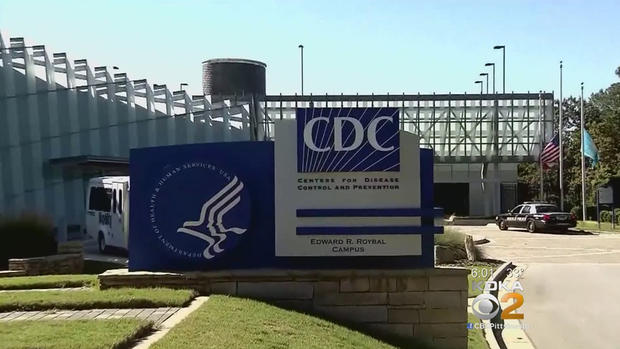CDC Escalating AFM Response In Attempt To Identify Source Of Outbreak
Follow KDKA-TV: Facebook | Twitter
(KDKA/CNN) -- The U.S. Centers for Disease Control and Prevention has escalated its response to the illness that's struck children in 29 states, increasing the number of disease detectives in its Atlanta headquarters from two to 16, according to a CDC official close to the investigation.
The job of the detectives -- formally known as Epidemic Intelligence Service officers -- is to collect data on acute flaccid myelitis, known as AFM, and try to identify the cause of the outbreak. Currently, the cause is unknown, and there's no treatment and no vaccine.
AFM is a rare illness that affects the nervous system, especially the gray matter in the spinal cord, and causes muscle weakness and sudden onset of paralysis. There's a spectrum of how children can be affected: Some regain the use of their paralyzed limbs, while others are paralyzed from the neck down and can breathe only with the help of a ventilator.
The official said there was an "urgency" to the situation.
"It was clear in October that we needed more staff to do the critical response," the official said. "We're pulling together the extra people, the extra minds, the extra resources, the extra activities."
This year, there have been 106 confirmed cases of acute flaccid myelitis and 167 possible cases, according to the CDC. Since 2014, there have been 430 confirmed cases of the rare disease. Ninety percent of them have been in children.
"Beginning In 2014 this time of year, late summer or early fall, we saw an unexpected increase in cases. We've actually seen that every two years since then," said Dr. Thomas Clark, an epidemiologist with the CDC in Atlanta. "We have to be prepared to have similar increase in cases two years from now."
Two additional suspected cases of acute flaccid myelitis are being currently reviewed in the Pittsburgh-area.
The Allegheny County Health Department said Monday that the two new patients are from Allegheny County and Westmoreland County.
This brings the number of suspected cases of AFM in the Pittsburgh-area to three. The third patient is from Beaver County.
There are also six confirmed cases of AFM. Five of those patients are Allegheny County residents. The sixth patient is a Washington County resident.
The six patients from Allegheny County are all from different municipalities.
In a CNN story last month, parents of children with AFM and some of the CDC's own medical advisers criticized the agency for being slow to respond to the outbreak.
Jeremy Wilcox, whose 4-year-old son was diagnosed with AFM in September, organized a meeting last week between parents and a top CDC official. He said he welcomed the stepped-up response. "This is very encouraging to hear the CDC has escalated their response, drastically increasing the resources to responding to AFM," he said. "This is a drastic difference."
Overall, the number of CDC staffers working full-time on the disease has more than doubled from 21 to 44 since the middle of October, according to the official. The new levels of staffing are part of an "escalation" on AFM not seen in previous years, the official said.
CDC Director Dr. Robert Redfield announced Monday that the agency had created the Acute Flaccid Myelitis Task Force to aid in the investigation. The task force will bring together experts from various fields in medicine and public health to try to find the cause of AFM and improve treatment.
"Part of our increased effort is to reach out to experts in the community, and the scientific medical communities to get the best outside expert opinion as well," said Dr. Clark.
Dr. Clark said many of the people on the task force have consulted with the CDC on this topic for awhile. The goal is to define the cause of AFM and improve treatment and outcomes for patients.
The official said it would take time to answer some of the most crucial questions about AFM. Though experts think it's caused by a common type of virus, it's not clear why most people who get the virus recover easily while others become paralyzed.
"I would hate to promise parents that it's going to be solved in a short time, because this is not something easy, or we would have solved it," the official said.
(TM and © Copyright 2018 CBS Broadcasting Inc. All Rights Reserved. This material may not be published, broadcast, rewritten, or redistributed. The CNN Wire contributed to this report.)




